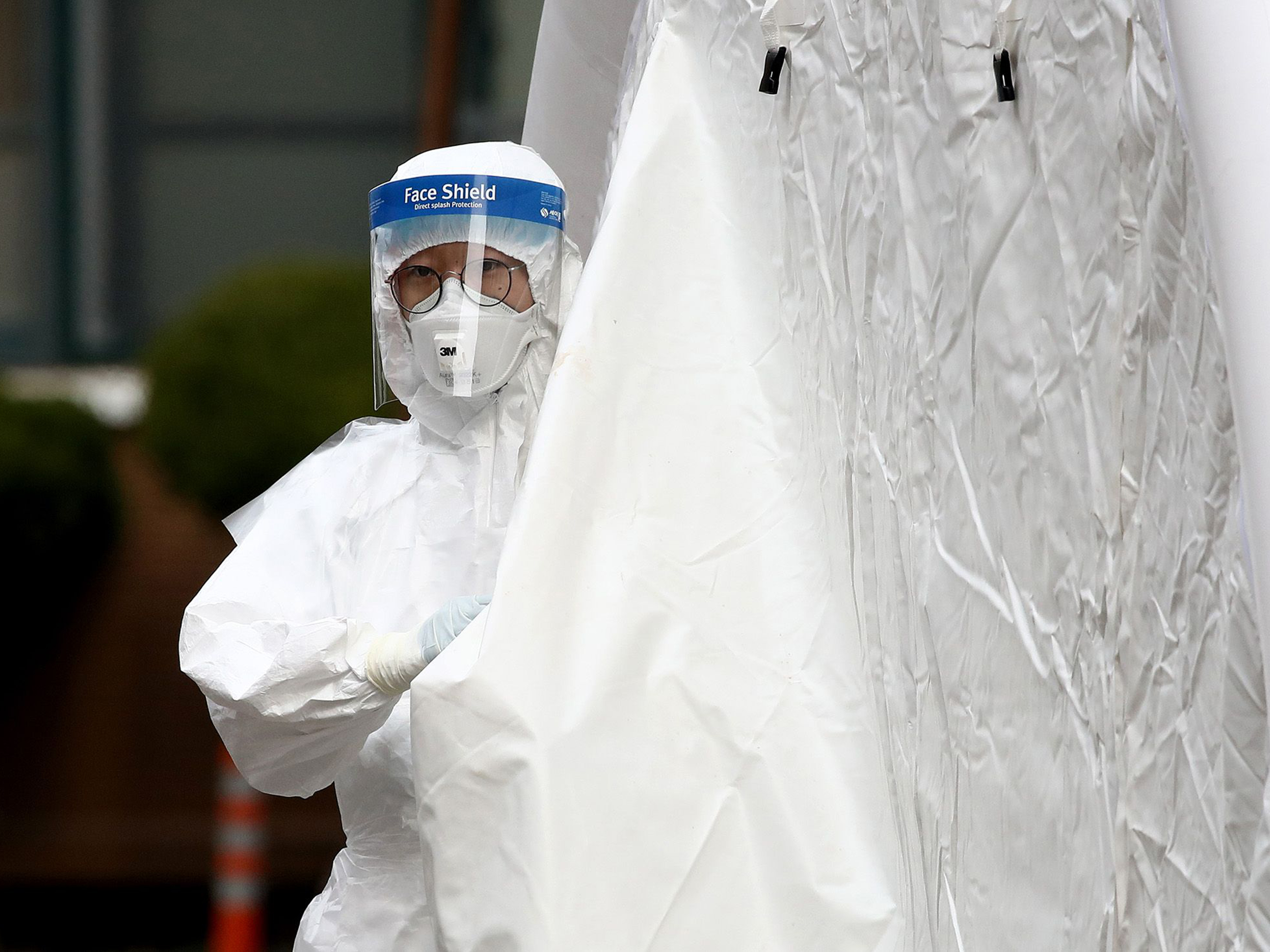
Home » Coronavirus: Supply-Chain Disruption Looks Like Natural Disasters
Coronavirus: Supply-Chain Disruption Looks Like Natural Disasters

February 27, 2020
Everyone is wondering when China will return to work. While it may be tempting to consider past epidemics or labor strikes to gauge how quickly that could happen, the industrial shutdown from the coronavirus is looking more like a natural disaster than anything else. It may even get worse.
Chinese industrial activity remains severely depressed. One tracker shows an even sharper, albeit shorter, drop than the global financial crisis in 2008. Coal consumption at six major power plants is well below normal operating levels this time of year. Already, global suppliers’ delivery times are getting longer, particularly in Germany and Japan, according to Goldman Sachs Group Inc. Companies that have come back online are struggling to return to full capacity. While some government controls have loosened in recent days, strict quarantines in key manufacturing hubs continue to take a toll.
Most employees remain at home, and things, in theory, could return to normal when China’s 300 million migrant workers get back to their jobs. But that’s now looking distant. Just 20% to 30% will resume before March, according to Jefferies Financial Group Inc. By the second quarter, that proportion will only reach 60% to 80%.
Interruptions from labor strikes, for example, will hit the bottom line and delay shipments for a few weeks, while the economic hit from severe acute respiratory syndrome in 2003 was relatively short-lived. By contrast, events like hurricanes, fires and floods, have a longer-term effect. Factories get destroyed, roads become difficult to traverse and logistics routes are upended by the destruction. Firms eventually run out of inventories. Until reconstruction work is well on its way, it’s hard to get the industrial cogs turning.
Hundreds of natural disasters occur globally each year that threaten lives and livelihoods. In the U.S., around 40% to 60% of small businesses never reopen their doors as a result, according to the Federal Emergency Management Agency. The ripple effects can be severe and cascade globally. A study of 41 major U.S. disasters showed that $1 of lost sales for suppliers led to a $2.4 loss for their downstream customers.
Consider Japan’s earthquake in March 2011, the fourth-largest ever recorded. Manufacturing output fell 15 percentage points that month and didn’t recover until August. Industrial production of transport equipment tanked, flowing through to exports. Japanese automakers including Toyota Motor Corp. and Honda Motor Co. saw their domestic production slump 63% in March.
American companies with a big dependence on Japanese parts suffered, too. It took the better part of a year to get production levels back to where they were before the earthquake; U.S. manufacturing output fell by 1% in April and stayed low for almost six months.
The coronavirus’s spread will be even more disruptive. From its large network of ports and industrial parks to the billions of yuan in subsidies, China is the nerve center of global manufacturing. In 2015, the country made up nearly a quarter of the value-added share in global imports. There simply aren’t enough alternative suppliers for the crucial, if basic, parts manufactured by China's thousands of small and medium companies. Even if Beijing provides the cash, businesses are hamstrung with the regulatory burden of reopenings and labor shortages. The network effect will be amplified and prolonged, studies have shown.
The trouble is, China Inc. won’t get back to work until these small and medium enterprises do. While the rate of return varies across sectors, manufacturers of so-called intermediate inputs, which are shipped globally, are having the hardest time. A survey of 2,240 such companies showed that more than 90% of respondents had delayed business resumption. A large portion haven’t decided when they will reopen.
Even companies like Toyota and Honda are struggling to get fully back online in China, given their dependence on local parts makers. The companies partially restarted operations at some plants as of last week.
The longer businesses are closed the higher the likelihood that supply chains start breaking down, as firms run out of inventories and stockpiles. And even when they do return, factories won’t be picking up where they left off. Volkswagen AG’s joint venture with China FAW Group Co., for instance, resumed at four plants last week, but won’t be at full steam until May. It will try to recoup losses by November, according to a production manager cited in state-run China Daily. That looks optimistic.
Meanwhile, manufacturers have few choices. Beaten by costs and pricing, companies now depend on lean supply chains. All the advances in manufacturing — such as Toyota’s famed “just-in-time manufacturing” — are premised on minimal inventory and short lead times. That looks like it could backfire. As Toyota’s president Akio Toyoda said last week, “Automobiles have a broad base, and there are various things like the status of parts supplies that you don't know until you put everything in motion again.”
It’s only natural to look for comparisons that put a bookend on this crisis. Knowing that SARS cases dwindled after a few months and the economy eventually rebounded can be comforting, to a certain degree. Yet we’re starting to see that the coronavirus outbreak has few precedents. It may only be a matter of time before this episode becomes the benchmark for future disruptions.
RELATED CONTENT
RELATED VIDEOS
KEYWORDS Automotive China Global Trade & Economics HR & Labor Management Industrial Manufacturing Inventory Planning/Optimization SC Security & Risk Mgmt Sourcing/Procurement/SRM
Subscribe to our Daily Newsletter!
Timely, incisive articles delivered directly to your inbox.
Popular Stories

2024 Supply Chain Management Resource Guide: There's Only One Way Off a Burning Platform
VIEW THE LATEST ISSUECase Studies
-
Recycled Tagging Fasteners: Small Changes Make a Big Impact
-

Enhancing High-Value Electronics Shipment Security with Tive's Real-Time Tracking
-

Moving Robots Site-to-Site
-
JLL Finds Perfect Warehouse Location, Leading to $15M Grant for Startup
-
Robots Speed Fulfillment to Help Apparel Company Scale for Growth



